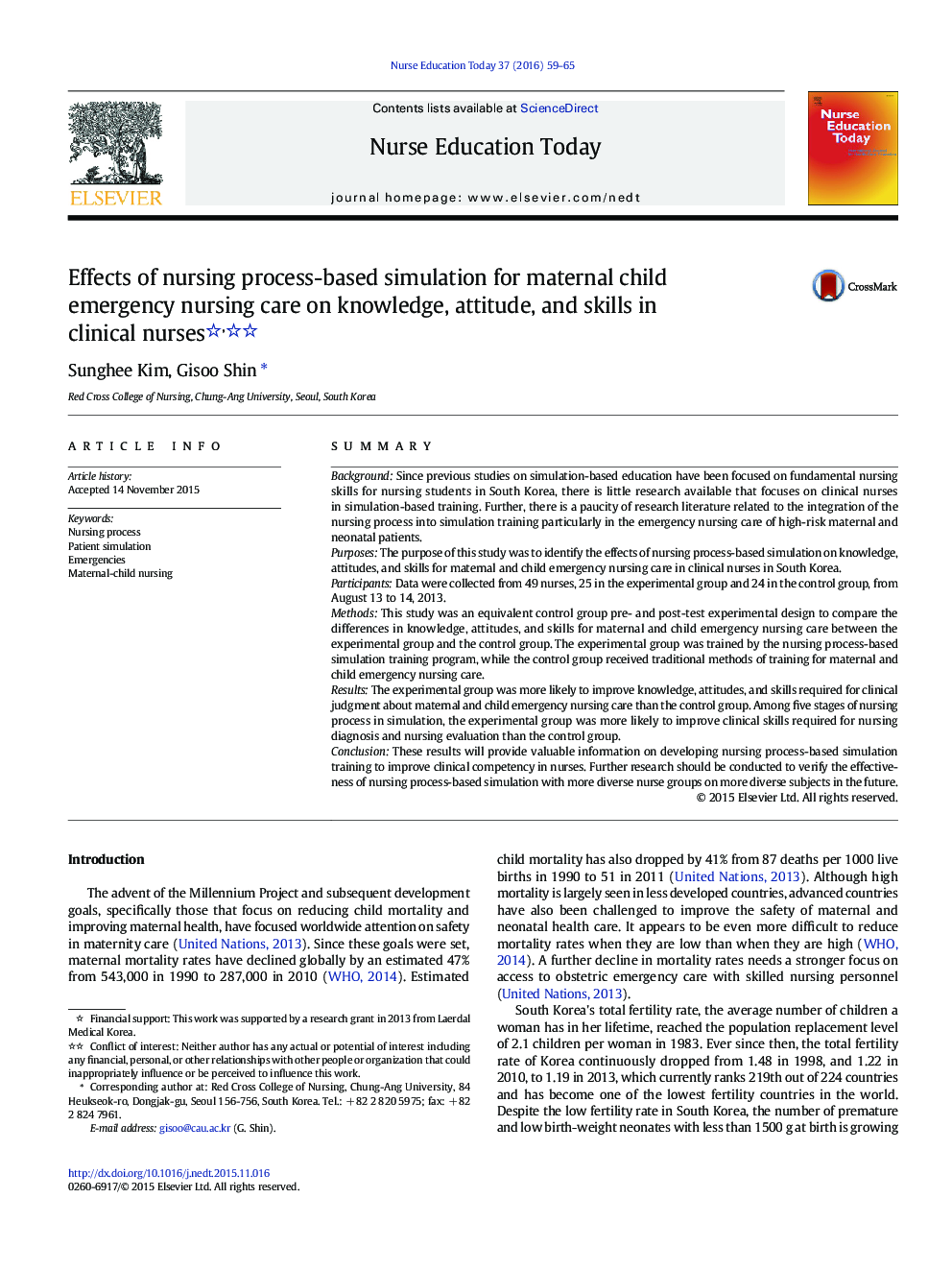| Article ID | Journal | Published Year | Pages | File Type |
|---|---|---|---|---|
| 368002 | Nurse Education Today | 2016 | 7 Pages |
•The total fertility rate of Korea becomes one of the lowest fertility countries in the world.•The increased maternal-infant mortality rates have a serious health problem in South Korea.•Emergency nursing care is of critical importance for high-risk obstetric and neonatal patients.•This study was conducted to identify the effects of nursing process-based simulation training.•It was demonstrated knowledge, attitudes, and skills for maternal child emergency nursing care.
SummaryBackgroundSince previous studies on simulation-based education have been focused on fundamental nursing skills for nursing students in South Korea, there is little research available that focuses on clinical nurses in simulation-based training. Further, there is a paucity of research literature related to the integration of the nursing process into simulation training particularly in the emergency nursing care of high-risk maternal and neonatal patients.PurposesThe purpose of this study was to identify the effects of nursing process-based simulation on knowledge, attitudes, and skills for maternal and child emergency nursing care in clinical nurses in South Korea.ParticipantsData were collected from 49 nurses, 25 in the experimental group and 24 in the control group, from August 13 to 14, 2013.MethodsThis study was an equivalent control group pre- and post-test experimental design to compare the differences in knowledge, attitudes, and skills for maternal and child emergency nursing care between the experimental group and the control group. The experimental group was trained by the nursing process-based simulation training program, while the control group received traditional methods of training for maternal and child emergency nursing care.ResultsThe experimental group was more likely to improve knowledge, attitudes, and skills required for clinical judgment about maternal and child emergency nursing care than the control group. Among five stages of nursing process in simulation, the experimental group was more likely to improve clinical skills required for nursing diagnosis and nursing evaluation than the control group.ConclusionThese results will provide valuable information on developing nursing process-based simulation training to improve clinical competency in nurses. Further research should be conducted to verify the effectiveness of nursing process-based simulation with more diverse nurse groups on more diverse subjects in the future.
